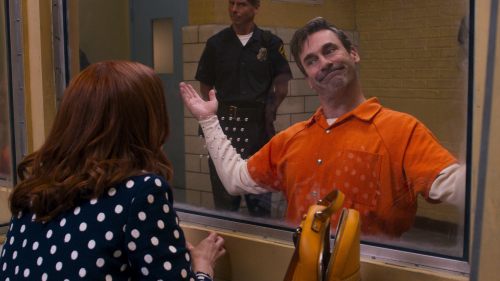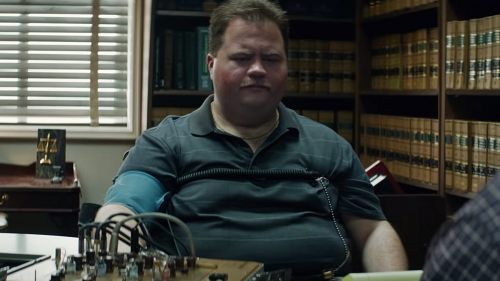RICHARD JEWELL Review: Eastwood’s Trojan Horse
Clint Eastwood has had a complicated relationship with the director’s chair over the past decade and change. When Clint’s on his game, he’s telling stories of working-class struggle, where people who should be seen as heroes simply aren’t given their due and need to actively fight to reclaim it. The most notable good recent example of this is Sully, though the theme also permeates into a second mode of Eastwood’s modern oeuvre, which finds him using those kinds of working-class stories to push an agenda informed by his right-wing jingoistic politics. These are your films like American Sniper and The Mule, which are competent enough productions that also come dripping with the director’s distasteful attitudes promoting militaristic American exceptionalism and an antiquated approach to racism. Richard Jewell is something of an interesting case in the 89-year-old director’s late career, because at first glance it would appear to be just another case of Eastwood’s ire directed at a modern Republican bugbear, in this instance the so-called liberal media. And to a certain extent, that is what’s going on here, but there’s also a surprising amount of restraint to Eastwood’s direction that perhaps feels a bit more objective, even if it still doesn’t quite pass the smell test for having been made with the best of intentions.
The titular hero of the film (Paul Walter Hauser) is a security guard who discovered a backpack containing a bomb at the 1996 Summer Olympics in Atlanta, Georgia. Though initially heralded for saving the lives of those in the bomb’s immediate vicinity before it exploded, he quickly becomes the prime suspect of the FBI’s criminal investigation, here personified by Jon Hamm as Agent Tom Shaw. This kicks off a media frenzy in which Jewell and his mother (Kathy Bates) cannot leave their home for fear of being harassed, and Jewell faces potential prison time as investigators work themselves into believing in his guilt, even in spite of contradictory evidence. The only person to help Jewell is his attorney, Watson Bryant (Sam Rockwell), whose stand between Jewell and the authorities keeps the sympathetic buffoon from being railroaded into prison.
Though stark and procedural as Eastwood is when he’s at his best, Richard Jewell is much more of a character study of Jewell than an examination of the case surrounding him, mostly because the case itself was held together more by the appearance of guilt than the actual evidence thereof. Billy Ray’s screenplay and Hauser’s nuanced performance portray Jewell is a bit of a slow-witted dreamer who believes in doing good in the world but doesn’t necessarily see that he comes off to people as uncomfortably off-putting. He worships the rule of law so heavily that he neglects such menial concepts as jurisdiction and constitutional rights, as seen when he abuses his powers as a security guard to break into a college dorm room without warrant or police authority. Jewell is in love with the idea of being a police officer, is an avid gun collector, doesn’t recognize the importance of paying his taxes, and has an idealized and fetishistic deference to authority, and though he doesn't exhibit violent tendencies, those qualities also just so happen to make him a textbook example for the profile of a lone bomber.
This is the central thesis on which Richard Jewell hangs its laurels: the appearance of guilt is often falsely equated the existence of guilt, both by police authorities and by the general public as led by the news media. As to the former, the film hits upon a rather astute point, albeit in a protracted manner that overly relies on self-righteous speeches delivered for the audience’s benefit. The FBI does railroad Jewell in a manner that ignores evidence in favor of emotionality, though it’s worth noting that the film stops just short of falsely considering criminal profiling useless. What happened to Jewell is upsetting not in spite of his initially alarming beliefs yet relatively benign behaviors, but because of them, and the film’s defense of the presumption of innocence is a strong one.
Where the film loses its way is in the portrayal of the journalistic process, which feels more than a little tasteless in the year 2019, when the fourth estate is constantly being accused of fabricating allegations against a certain president with much more credible evidence against him for his alleged transgressions than Jewell ever did for the Olympic Park bombing. Eastwood exemplifies the journalism industry through a tastelessly sexist caricature of reporter Kathy Scruggs (Olivia Wilde), portrayed as a cartoonish seductress that conspires over the tantalizing notion of Jewell’s guilt with Agent Shaw, intending to create a good story where none exists. It’s her mindset that is shown to be the matchstick that ignites the media circus surrounding the investigation into Jewell, and in the process, it villainizes journalists as willfully ignorant of facts. Where Eastwood puts the media under examination reads less like a thoughtful critique of sensationalized tabloid journalism and more like a condemnation of the whole industry as malicious and vindictive, which is both reductive and, frankly, dangerously insidious.
There are other quirks of Eastwood’s that feel unnecessarily irksome – the man goes out of his way to put Confederate imagery in the backgrounds of his shots – but in terms of his contemporary output, Richard Jewell is probably the best thing he’s made in the last decade after Sully. That’s because, on the surface, it’s entirely functional as a cautionary tale of police overreach and herd mentality. It’s where Eastwood makes himself explicit about his reasons for making this movie now that he undermines his genuine no-frills artistry.
Richard Jewell opens in theaters on December 13, 2019.



